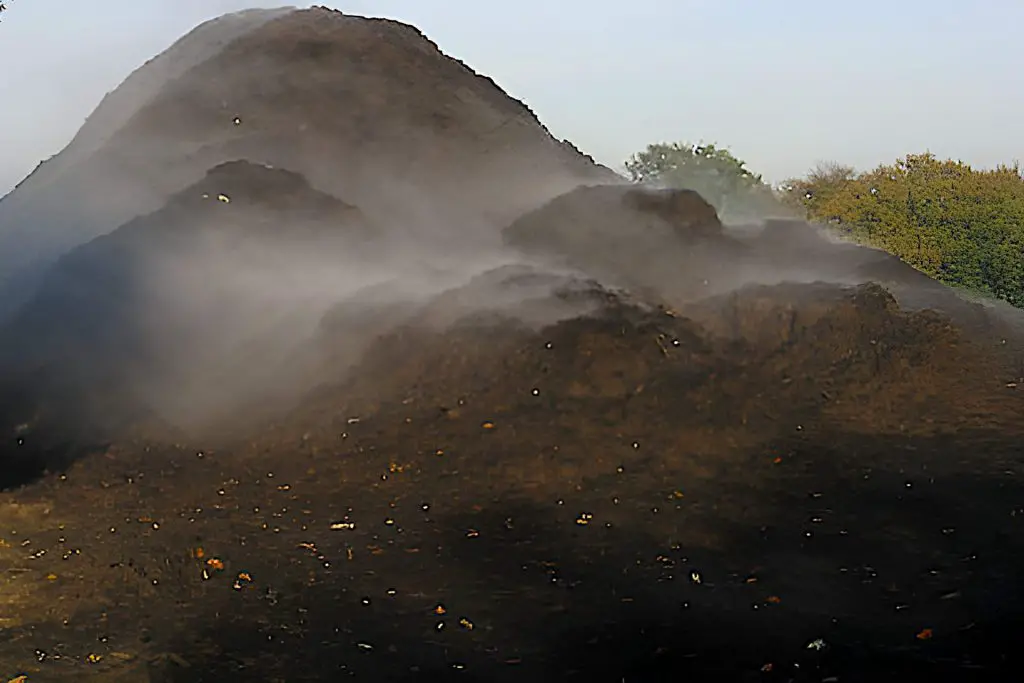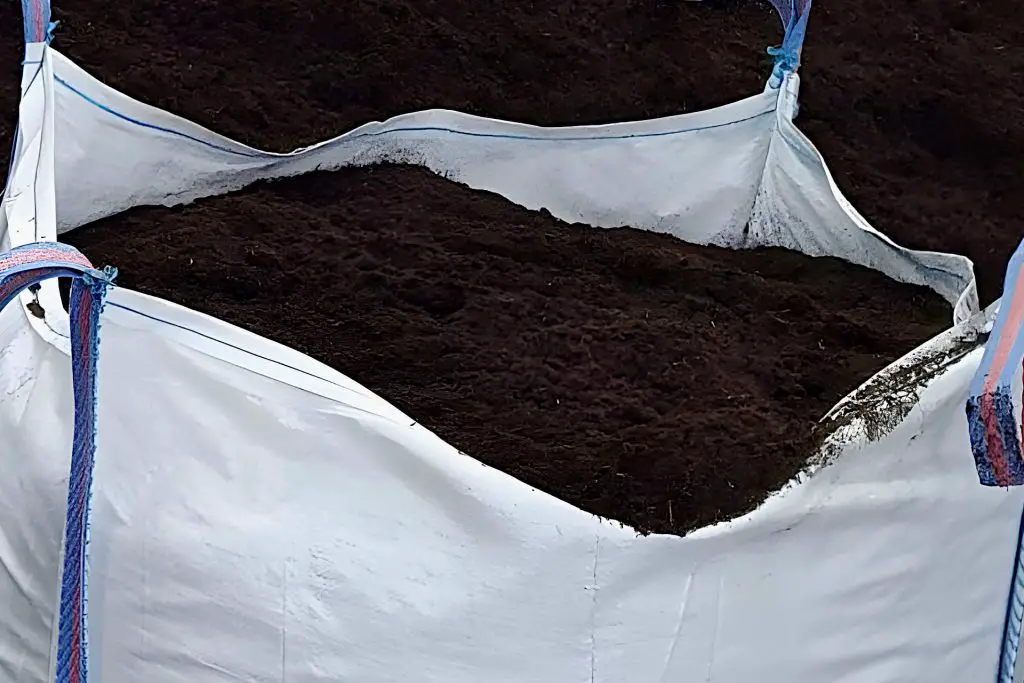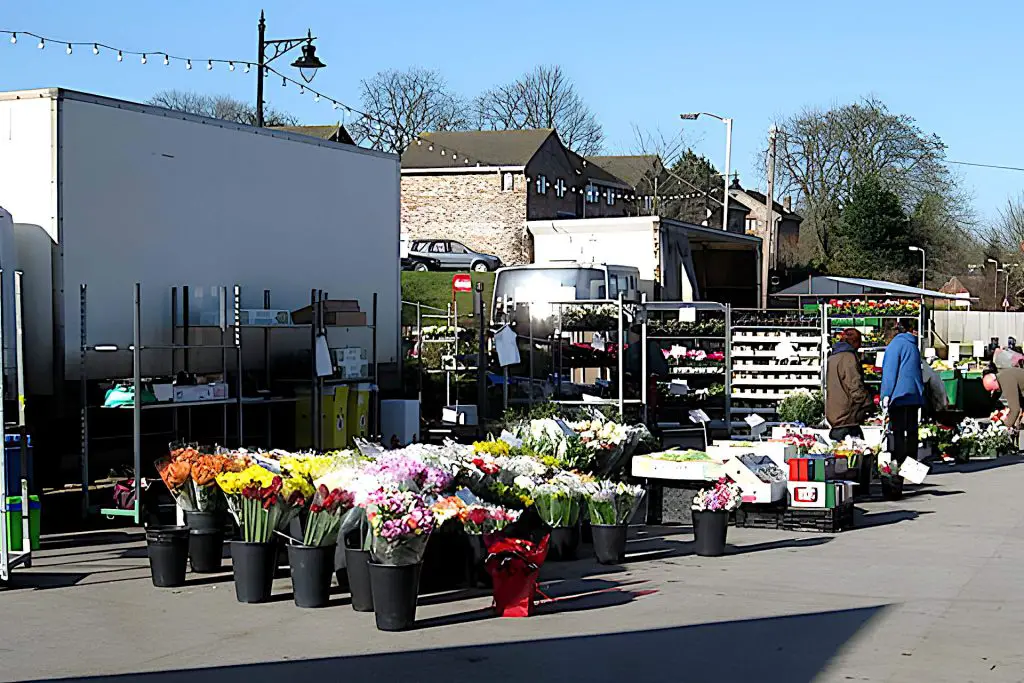How to Sell Compost? Turning Your Black Gold Into Cash
Composting at home isn’t just about reducing landfill waste; it’s a golden opportunity to enrich your garden soil and even turn a profit. This guide unveils how you can convert your ‘black gold‘ – the everyday compost – into cash or channel it for the greater good.
- Composting for Profit: Home composting can be profitable by selling or donating valuable compost.
- Types and Preparation: Different composts and manures have unique uses and preparation methods.
- Selling Strategies: Compost selling involves assessing volume, storage, and methods like bagging or selling loose.
- Regulations and Sales Channels: Selling compost requires understanding state laws and utilizing various online and physical sales channels.

Imagine a world where every crumb of your kitchen waste and every fallen leaf in your yard transforms into a valuable resource. In the United States alone, an astonishing 268 million tons of waste was generated in 2017, translating to about 4.5 pounds per person daily. 1
Amidst this, a green revolution is quietly unfolding. From a mere 2.2% in 2000, food composting rates have almost tripled to 6.3% by 2017. In 2018, Americans composted a remarkable 25 million tons of municipal solid waste (MSW), including about 22.3 million tons of yard trimmings.
Profit from Composting
Whether you’re a casual home gardener or a small-scale farm owner, learn how to harness the untapped potential lying in your compost pile. Join the compost revolution and see your waste transform into wealth!
If you produce a large amount of excess compost or keep animals then you may be able to turn the compost or animal waste into cash, or if you are more altruistic, give it away for free and see it go to good use.
To consider doing this you will have to look at various factors such as type, preparation required, and possible selling channels that you can use.
The other factor that needs to be considered is volume. Are you just a home gardener with too much compost that you don’t want to store, or are you a small farm or homestead that produces a consistent volume of compost and or animal waste? This is important as you are likely to follow two different sales routes.
Selling Homemade Compost
It is surprising how much compost you can produce in a residential or small homestead/farm environment. This might well be the case if you have a large amount of brown organic material to dispose of or keep chickens, rabbits, goats, or sheep.
If you can’t use the volume you produce, the question becomes what to do with it? One solution is to sell it and or give it away. You might even consider it as a useful sideline business, particularly if you have a continual supply. The whole selling process is perhaps a little easier than you might think.
Separating into Types
Different types of compost have different nutrient values and are used for different purposes. Although in some instances you will add animal waste to compost piles, the animal waste being an incredibly nutrient-rich organic material on its own is often put straight onto the soil.
Animal Waste
Not all animal manure is the same. You are going to keep the individual types of animal manure separate. They each have different nutrient properties and will be bought for different purposes.
Some animal manures such as chickens, goats, sheep, or cows will require aging to eliminate any possible pathogens that might be present. Around six weeks is a common interval for aging this type of manure.
It would also need to be applied to the ground at planting, rather than later in the growing cycle, as you should have a least a four to five-month interval, for food crops, from use. Those using manure would likely know this, but just in case you should specify this at the sale.
Rabbit droppings are much easier to handle and can be bagged and sold as soon as they are collected.
Organic Compost
Depending on what organic materials you are composting you are going to batch it by type and nutrients. A soil test kit can help establish nutrient differences for various batches. This isn’t going to apply to domestic compost, which you would just sell as general compost unless you have used specific ingredients to increase certain nutrients or their acidity level.
Compost Business Strategies
Preparation for Selling Your Excess Compost
The first thing to consider is how much volume there is and how it is stored. In some large yards, you might have more than one pile and find that you don’t need the second pile.
Selling the Compost Loose
If you are looking to sell the whole pile loose, then, if there is not a great amount then this is possible to just barrow it to the bed of a buyer’s pick-up or truck. It might require a bit of work but if it is a question of just getting rid of your excess compost then this might be the simplest solution.
Using Sand Delivery Bags

Another option is to get some loose sandbags and fill them, although, it is probably easier if you have a small farm or homestead. Sand is often sold in this way and This is an efficient way to compartmentalize the pile and sell to multiple buyers. It might be a particularly good solution if you are going to have a ready supply of compost.
The only downside of this approach might be the ability to lift the bags. If you have a mini tractor, a hoist, or a mini crane, this clearly won’t be an issue.
Instead of sandbag sacks, you could also use 5-gallon buckets. These are less than a dollar at most wholesalers and are a great, manageable way to quantify and sell you loose compost.
Bagging the Compost into Plastic Sacks
If you have a considerable amount of compost you might want to consider bagging it. You don’t need a complicated setup and if your goal is to maximize your return then this is going to be the best solution.
You will need plastic sacks and a heat sealer which you should be able to pick up from pretty much any packaging company or find online. Even if you were not going to sell the compost but store it. This is the best solution for keeping it fresh for several years as you will prevent air and moisture from getting to it, which can degrade the finished compost.
Who Buys Compost? Channels for Selling Your Compost
A lot of people are put off by the idea of having to sell. The great thing about compost is that it pretty much sells itself; people know what it is if they want it.
In today’s world, there are a great many different sales channels readily available to everyone, both online and physical selling opportunities abound.
Where to Sell Compost Online?
There are a plethora of online channels that can be used to sell your excess or your compost production. This is a particularly good route to take if you don’t like selling.
If you are looking at turning your ‘compost production into a small cottage industry’ you could consider putting up a website.
Website
Putting up a website doesn’t need to be difficult or even expensive. Indeed, there are lots of free options available such as Google Sites, WordPress, or Wix to name just three, that take care of almost all of the technical side for you.
They all have simple templates and require very little skill or effort to set up. Link them to a PaPal account or take payment on the collection and you have a business. Set up a sales Google My Business Page, and Facebook Page and you should get some local interest.
Facebook Marketplace
If you are looking to sell occasionally and don’t want anything too formal like a website, then Facebook Marketplace is a great place to start. If you are only selling occasionally, it is free and if you are going to do it commercially there is a 5% fee. Facebook marketplace is a particularly good option because the people who see the marketplace offers are usually local.
If you are looking to regularly produce and sell compost, you can also set up a Facebook Page and/or Group to help drive interest.
Classified Ads

Other online options include Craigslist, Gumtree, and other localized classified sites. Again, the interest you get should be local.
Auction Sites
You could also try places like eBay stating that it is ‘collect only’, which should keep the majority of interest to people who can actually collect. This method will have a cost attached, although this is still relatively inexpensive in the scheme of things.
Selling Compost in the Real World
Of course, there are plenty of old-school methods that are available on sales channels. If you don’t mind a little bit of selling, then they can be the most effective way to shift your compost.
Garden Centers
The most logical option is garden centers. Not the large chains but local independent places. If you are going to turn your compost production into a ‘cottage industry’ then having a regular sales and distribution channel is going to make a big difference.
You will be surprised at how accommodating that can be as it is often a win-win situation for both you and them. The opportunity for them to be able to offer high-quality, locally produced compost, rather than the usual commercial compost they offer is likely to be popular.
Farmers Markets

The next option is traditional markets. The best type of market is probably going to be a Farmer’s Market. Many towns operate them and they tend to move town to town as per the day of the week. Stalls are usually relatively inexpensive and you will probably find that you will struggle to keep up with the demand.
General markets can also be good. With these sorts of markets, some will be better than others, and demand is likely to vary from town to town.
If you are just looking to get rid of excess compost, then a car boot or a car trunk sale are great ways to sell it. Over recent years these have become very popular, and pitches tend to be incredibly cheap.
Community Gardens and Gardening Clubs

Community Gardens can also be a good avenue for sales. Most towns have at least one with some having several. These can be places where if you are not looking to sell your excess compost, there is likely to be plenty of demand to take it off your hands.
This doesn’t of course preclude selling. If you have a regular supply, you might be able to strike a deal with the Community Garden committee and become a regular supplier to them.
Legal Considerations for Selling Compost in the U.S.
In the United States, diving into the business of selling compost requires an understanding of various state laws and regulations. These laws are not uniform across the country; they vary significantly from one state to another, particularly concerning waste diversion, composting, and organics recycling.
However, often the laws actively encourage the reduction of organic food waste which makes the role of composting more attractive. For example, Vermont passed legislation requiring residents and businesses to reduce organic waste with a total ban on food waste in landfills by 2020.2
State-Specific Regulations
- Environmental Codes: States like Maryland have implemented environmental codes aimed at promoting organic recycling. These codes often target large waste generators such as supermarkets, hotels, schools, and food processing facilities.
- Mandatory Composting Laws: California is a prime example of a state that mandates composting. Here, both food and yard waste are required to be composted, with a ban on sending them to landfills.
- Limitations and Incentives: Some states not only limit organic waste production but also offer incentives like tax credits. These credits are particularly aimed at farmers who donate edible agricultural products.
Why Comply?
- Environmental Responsibility: Adhering to these laws is crucial for environmental sustainability. By understanding and complying with your state’s regulations, you contribute to reducing landfill waste and promoting organic recycling.
- Legal Compliance: Non-compliance can lead to legal consequences, including fines and penalties. It’s essential to ensure your compost selling venture abides by state laws to avoid these complications.
What You Need to Do:
- Research: Conduct thorough research or consult with legal experts to understand the specific laws in your state regarding compost sale.
- Licenses and Permits: Depending on your location, you may need to obtain specific permits or licenses to legally sell compost.
- Stay Updated: Laws and regulations can change. Stay informed about any updates or modifications in composting laws in your state.
Wrap-Up: How to Sell Compost
Selling your excess or homestead/farm-produced compost is not difficult. The wonderful thing about compost is that it is needed by pretty much all gardeners, but many don’t have the time, confidence, or perhaps patience to make their own. Each year hundreds of millions of sacks of commercial compost are sold, but most gardeners know that homemade compost is better.
Not only is there a ready market but there are also numerous different sales channels that you can use. If you don’t like selling, then there are lots of online options and if you don’t mind a bit of face-to-face interaction there are lots of physical sales channels available.
Probably the hardest part is going to be making it saleable, bagging it, or finding a way to easily quantify amounts. With a little thought and sometimes effort, even this is fairly straightforward, with plastic sacks, sand or feed bags, and 5-gallon buckets all simple solutions.
- Indiana University- Composting at Home ↩︎
- Food waste legislation, Vermont ↩︎
